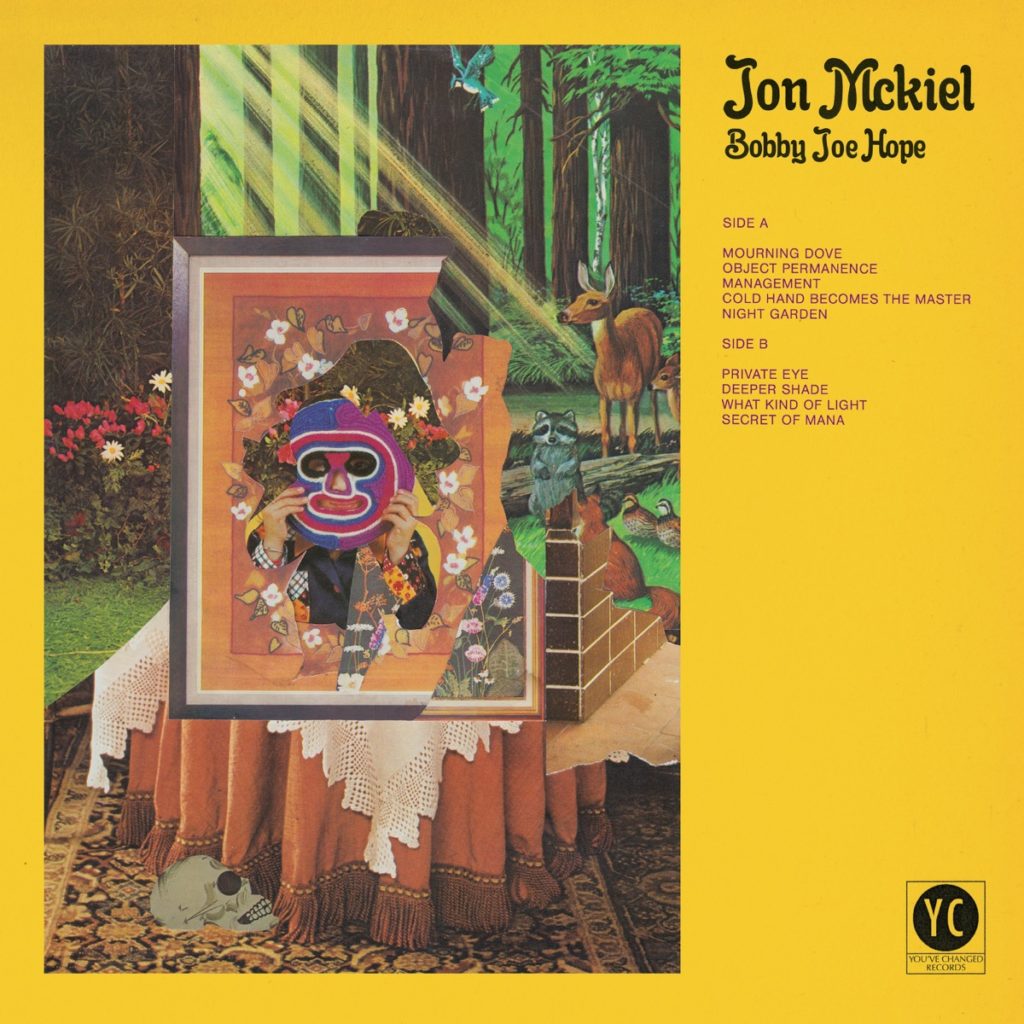Jon McKiel’s latest album, Bobby Joe Hope, offers a listening experience that is as much a curiosity as it is pure enjoyment.
Matt Carter
 There are not a lot of musicians who can honestly claim to have written an entire album’s worth of music with a complete stranger. But that’s exactly where the story behind Jon McKiel’s new album, Bobby Joe Hope, begins.
There are not a lot of musicians who can honestly claim to have written an entire album’s worth of music with a complete stranger. But that’s exactly where the story behind Jon McKiel’s new album, Bobby Joe Hope, begins.
Released April 24 on You’ve Changed Records, the same label that released McKiel’s last album, Memorial Ten Count, Bobby Joe Hope has already received a lot of favourable and well-deserved attention. In many ways, it’s a phenomenal record from concept to realization. But as much as it is a story about one musician and the unique path of inspiration he chose to follow, it’s also a story of a friendship and creative partnership that continues to one-up itself at every new juncture.
The roots of this recording can be traced back to a collection of oddly alluring audio samples discovered among reams of old reel-to-reel tape.
“I bought an eight track machine that came with a whole whack of old tape,” said McKiel. “Usually when I run out of fresh tape to use, I’ll put on an old one and listen to it to make sure I’m not recording over anything good. That’s where I found these recordings.”
The recordings he’s referring to amounted to little more than the scattered ideas of an unknown musician (or musicians), discarded, perhaps out of frustration or disillusion. But they possessed enough interesting rhythmic or melodic qualities to push McKiel’s interest beyond simple curiosity.
“I’ve always referred to this guy as the Unknown Dude because I don’t know who it is or where this stuff came from,” said McKiel. “I have been jamming with the Unknown Dude in my studio for a long time.”
Eventually reaching the point where he felt he had enough material to form an album, McKiel then reached out to his longtime friend and collaborator Jay Crocker.
Crocker and McKiel first met in Calgary years ago. These days both musicians live on the East Coast and have been working together on various projects for years. Between writing and performing his own material as JOYFULTALK and managing other projects, Crocker recorded McKiel’s self-titled solo album and engineered, mixed and performed on 2017’s Memorial Ten Count.
According to McKiel, Crocker’s approach to creating and recording music has had a significant impact on how he approaches his own craft.
“Our friendship and our working relationship has been really fruitful,” said McKiel. “I come from more of a punk rock background and Jay has a jazz background. We work really well together and I can’t really say enough about him. He’s definitely changed my ability to record my own music and has changed my entire perspective on music.”
Bobby Joe Hope is unlike anything McKiel has ever done. While his voice and his songwriting remain at the centre of much of this material, the accompaniment he conceived and later created with Crocker is in a word, otherworldly. Dense textures and looped phrases meet with significant touches of minimalism to create a listening experience that is as much a curiosity as it is pure enjoyment.
“I recorded most of the tunes from the new record on an eight track and then we put everything together in a sampler,” said McKiel. “Since Jay’s been working in that world for a while now doing his JOYFULTALK stuff, he was able to really mine these samples for us. We’ve only really scratched the surface of what’s in there.”
Recorded at both McKiel’s studio in Sackville and Crocker’s on the south shore of Nova Scotia, the two collaborators set to work with only one rule to guide them: the Unknown Dude always needed to be present.
“As a rule for this project, we decided that either we were going to make the Unknown Dude sing with us or we were going to sing with the Unknown Dude,” said McKiel. “So in some cases we would make him play on music that I had already written and in other cases we would use his sample as the basis for the song and I wrote my shit around his stuff. I’ve never made a recording like this before, just out of snippets, so there was a lot that went into making it sound the way it does. It was a bit painstaking to put together but I’m happy with the result for sure.”
Leading up to the lockdown, McKiel had been rehearsing with Crocker and drummer Bianca Palmer. Plans to tour the project have been put on hold.
“We were rehearsing it and we were going to tour it. Because this is a bit of a softer record, we were looking into using maybe fewer drums or none at all on some songs. Jay would be playing a sampler as well as some bass and some guitar. Aaron Mangle might have joined us too. We had a light show. But unfortunately we didn’t get to pull that out,” said McKiel.
“It had the potential to sound exactly like the record and I hope we can make it happen once the smoke clears from this whole thing.”
Bobby Joe Hope is available now through You’ve Changed Records, but you should probably hit up your local record shop. They could use the support right now.




